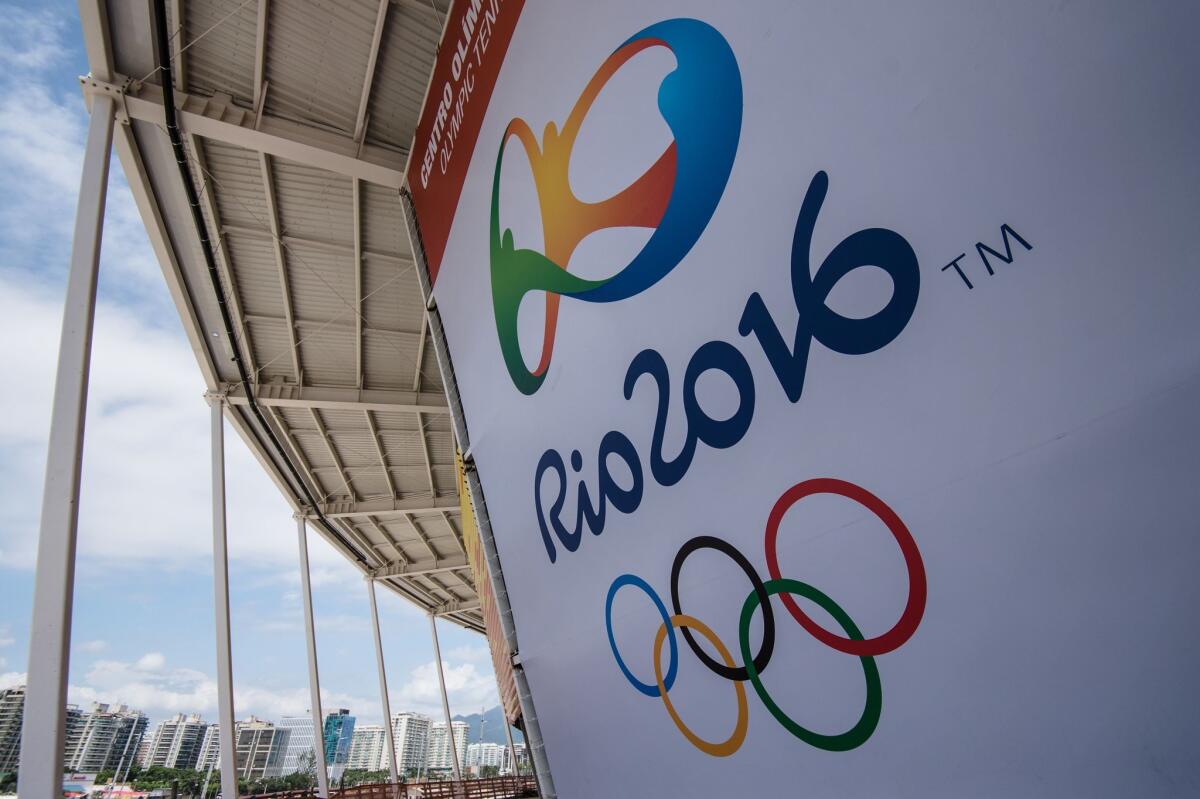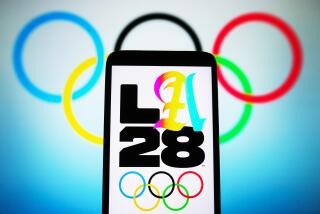Another vestige of Olympic purity falls away with Las Vegas sports books taking bets on Games

Reporting from LAS VEGAS — The long, slow erosion of the Olympics’ claim to sporting purity has reached a new landmark.
The Summer Games in Rio de Janeiro will be gambled on inside Nevada sports books.
The Nevada Gaming Control Board, acting on the interests of race and sports book directors in the state, agreed last year to allow bettors to wager on Olympic events for the first time since the practice was forbidden in 2001.
Asked if the world should pause to mourn the lost innocence once associated with the Games, the head of Las Vegas’ powerful Westgate Superbook saw no reason to shed a tear.
“‘Used to be’ is exactly right, because almost everyone in the Olympics is getting paid now,” Jay Kornegay said. “I don’t think there’s anything wrong with it. The Kenyans in the marathon, the Russians — they get paid. Our athletes get endorsements. There are very few amateurs left.”
Experts speculate Nevada books will accept around $20 million to $30 million in betting tickets on Olympic events, a small fraction compared to the sports that gamblers bet most frequently on the big boards along The Strip.
Jay Rood, director of the race and sports book for MGM Resorts, said he expects 70% of Olympic bets to be on men’s basketball games.
“And I think the average draw [betting amount on a specific game] will be like a low-tier college game, like Santa Barbara playing Long Beach,” Kornegay said.
“The gold-medal game, even if it becomes this super showdown of the U.S. against a team who’s beating everyone by 50 will be 10%, maybe less, of the average game in the Cleveland-Golden State NBA Finals.”
Nevada’s Gaming Control Board re-instituted Olympic gambling after a campaign by Sen. John McCain (R-Ariz.) sought to stop betting on college sports.
McCain’s argument was that point-shaving concerns were real, because Nevada previously didn’t set lines on University of Nevada Las Vegas basketball games. The sports books ultimately retained college sports gambling, adding UNLV and Nevada games, but made a concession in 2001 to stop setting lines on the Olympics.
In 2012, however, the Summer Games in London were bet upon by books in England, catching the Nevada sports book directors’ attention and prompting them to push their state to overturn the ban.
“We stated the position that we’re at a bit of a disadvantage in Nevada by not being able to offer odds on some of the more mainstream events,” Rood said.
“Everybody agreed that we don’t think the state of Nevada is interested in booking 12-year-old gymnasts or ice skaters, but we do want to book the basketball, the hockey, some of the track and field — things that are appealing . . . the volleyball, the swimming.”
Stephen Mosher, a sports ethics and character development professor at Ithaca College in New York, said it is “not surprising to hear that Vegas is taking bets on Olympics.
“The purity of the Olympic movement was lost years ago when the International Olympic Committee removed any distinction between amateurism and professionalism. Only in the U.S. does a portion of the population actually believe in what even the IOC calls this ‘magic dust.’”
Regulations allow Nevada to set odds on all Olympic events, but Rood said he and most of his peers will limit setting odds to popular contests that are “scored or timed, not voted upon by judges, with the exception of boxing, because that is the accepted form of scoring.”
It’s good business, the Nevada bookmakers say, to offer action on events visitors want to gamble on. With limits not expected to exceed $2,000 on each bet, in most cases, the potential for fixing Olympic events is minimized, as well.
“We’ll appease those who want it now, but it’s really not going to move the needle at all for us,” Kornegay said.
Kornegay likes having odds posted on a lot of events, but admitted he can’t be overzealous when it comes to the Olympics. “It’s a lot of work,” he said.
Establishing odds and lines “has to be 100% accurate,” Kornegay said. “There’s unusual names, countries and rules — in some cases, we don’t even know the rules. So it’s going to be a very selective menu at most books — basketball, soccer, golf. You’re not going to see rowing, kayaking, fencing, handball.”
The bookmakers will strive to have odds set on the handful of other events that draw media attention and national interest. In some cases, the Nevada books will consider European and offshore book odds in setting lines for events considered third- and fourth-tier American sports.
“I know basketball, soccer, golf,” Kornegay said. “As far as swimming, fencing, absolutely not ...”
While most betting on the Games will be done by casual gamblers, Kornegay is aware that major gamblers — known as sharps — will pounce if he has a bad number.
“Sharps don’t care if the athlete or team is American, Romanian or Brazilian,” he said. “They just look at the odds and if there’s an overlay, I guarantee you they’ll take it.”
Twitter: @latimespugmire
More to Read
Go beyond the scoreboard
Get the latest on L.A.'s teams in the daily Sports Report newsletter.
You may occasionally receive promotional content from the Los Angeles Times.











